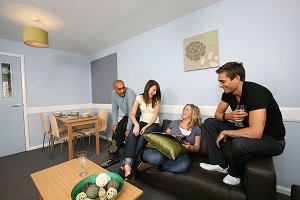Resident
A resident is an individual who uses a particular place as a residence on a permanent or long-term basis. A residence is typically a flat or a dwellinghouse.
A resident can be a tenant, i.e. someone who occupies a residence that they rent from a landlord, or they can own the freehold to the residence, i.e. they have the ‘title absolute’ of the property.
A resident can also be considered to be part of a ‘household’ which, according to the Household Projections: England prepared by the Department for Communities and Local Government, is defined in the 2011 Census as:
‘one person living alone; or a group of people (not necessarily related) living at the same address who share cooking facilities and share a living room or sitting room or dining area’.
The term ‘resident’ is also used to refer to citizens of countries, i.e. the ‘right of residence’, which affects whether or not an individual has the right to remain in the country, the obligation to pay tax, the right to medical care, and so on. In the UK, someone is classed as a resident if:
- They spend 183 or more days in the UK in a tax year.
- Their only home is in the UK (they must have owned, rented or lived in the home for at least 91 days in total), and within a tax year they spend at least 30 days there.
A resident differs from an occupier (or occupant) as this refers more widely to person/s and organisations who use any property for residential or commercial purposes.
NB The Explanatory Notes to the Draft Building Safety Bill, published by the Ministry of Housing, Communities & Local Government on 20 July 2020, defines a resident of a dwelling as: ‘…a person who lawfully resides there, regardless of tenure.’
It defines a resident engagement strategy as: '....the means by which those living in buildings covered by the new regulatory regime can get more involved in the decision-making in relation to the safety of their homes. It will set out the approach and the activities that the Accountable Person will undertake to deliver these opportunities for all residents to participate.'
A residents' panel is: 'A statutory committee to be set up by the Building Safety Regulator. The residents’ panel will be made up of residents and representatives/advocates of residents, and advise the Building Safety Regulator on strategy, policy, systems and guidance which will be of particular interest to residents of higher-risk buildings.'
[edit] Related articles on Designing Buildings Wiki
Featured articles and news
UKCW London to tackle sector’s most pressing issues
AI and skills development, ecology and the environment, policy and planning and more.
Managing building safety risks
Across an existing residential portfolio; a client's perspective.
ECA support for Gate Safe’s Safe School Gates Campaign.
Core construction skills explained
Preparing for a career in construction.
Retrofitting for resilience with the Leicester Resilience Hub
Community-serving facilities, enhanced as support and essential services for climate-related disruptions.
Some of the articles relating to water, here to browse. Any missing?
Recognisable Gothic characters, designed to dramatically spout water away from buildings.
A case study and a warning to would-be developers
Creating four dwellings... after half a century of doing this job, why, oh why, is it so difficult?
Reform of the fire engineering profession
Fire Engineers Advisory Panel: Authoritative Statement, reactions and next steps.
Restoration and renewal of the Palace of Westminster
A complex project of cultural significance from full decant to EMI, opportunities and a potential a way forward.
Apprenticeships and the responsibility we share
Perspectives from the CIOB President as National Apprentice Week comes to a close.
The first line of defence against rain, wind and snow.
Building Safety recap January, 2026
What we missed at the end of last year, and at the start of this...
National Apprenticeship Week 2026, 9-15 Feb
Shining a light on the positive impacts for businesses, their apprentices and the wider economy alike.
Applications and benefits of acoustic flooring
From commercial to retail.
From solid to sprung and ribbed to raised.
Strengthening industry collaboration in Hong Kong
Hong Kong Institute of Construction and The Chartered Institute of Building sign Memorandum of Understanding.
A detailed description from the experts at Cornish Lime.
























